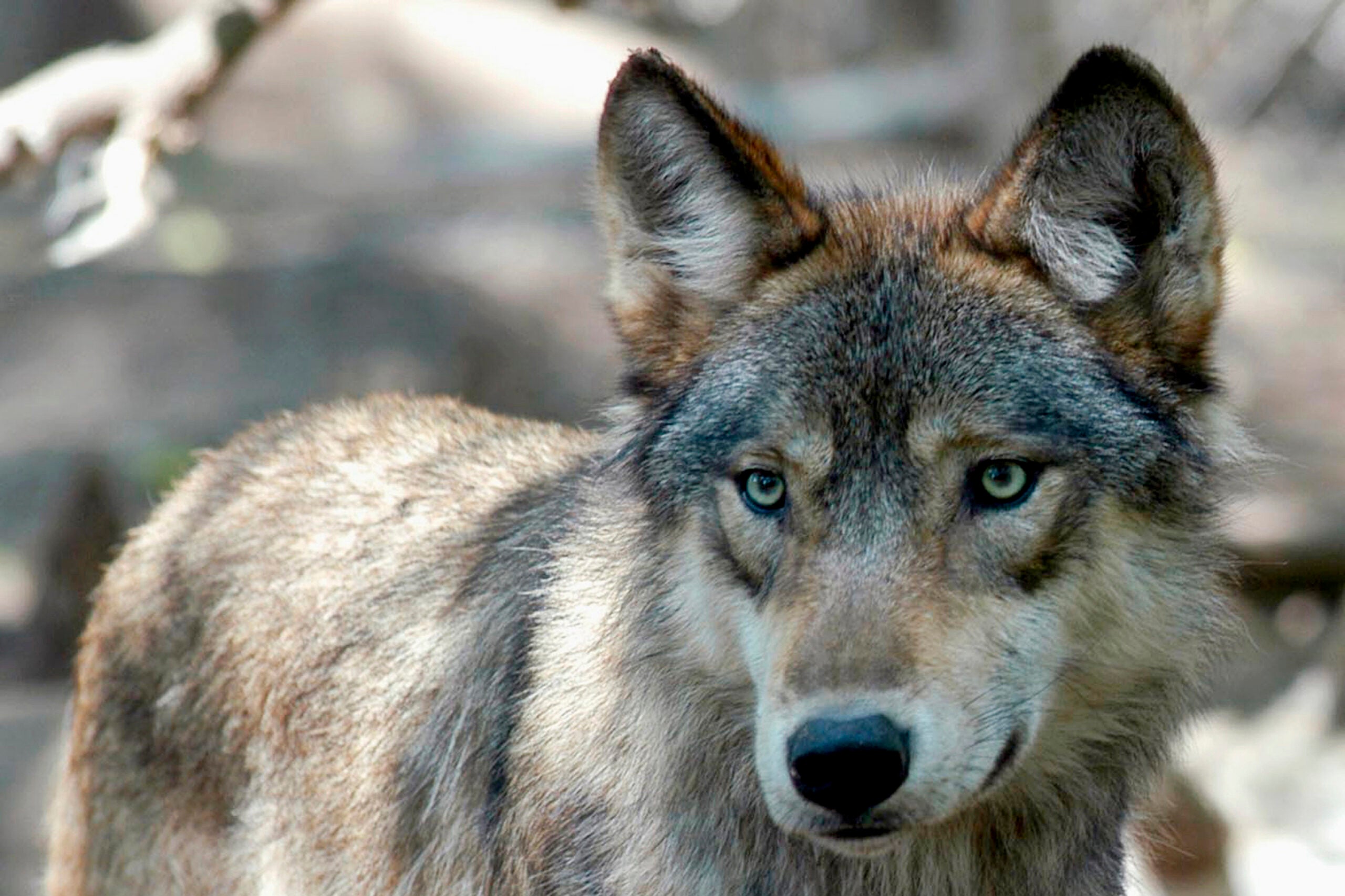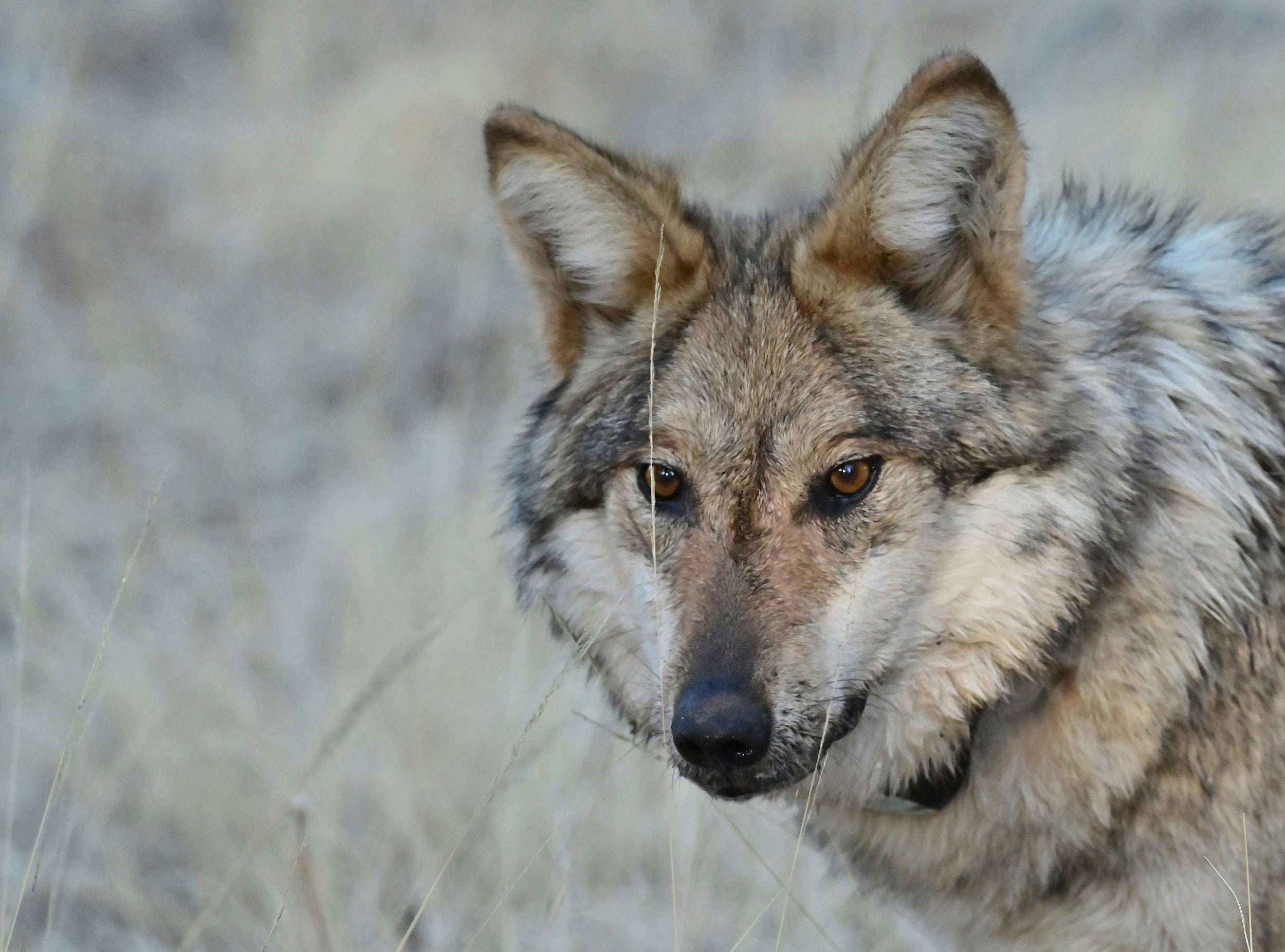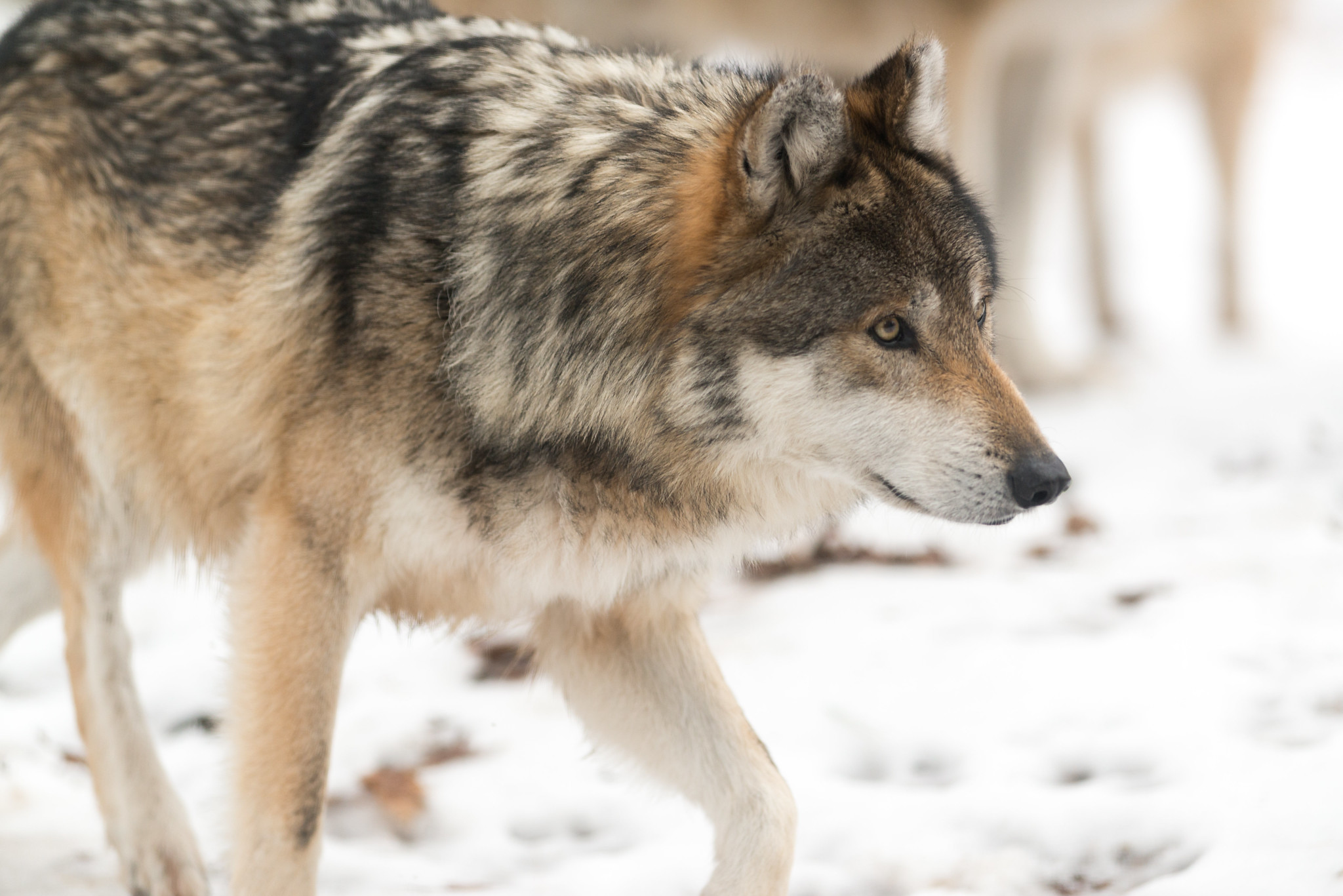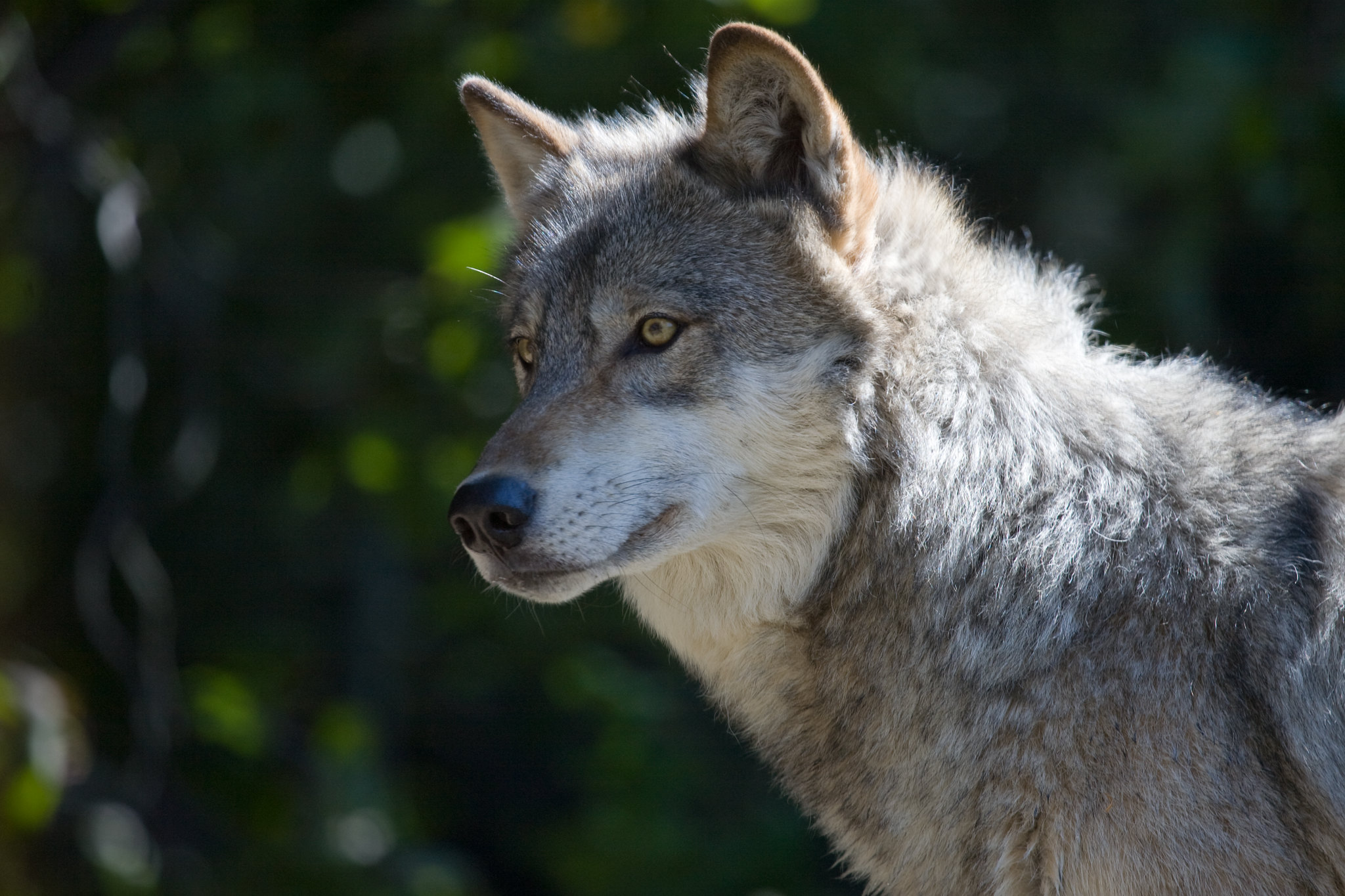Members of Wisconsin’s Ojibwe tribes say they’re outraged over a decision to set a quota of 300 wolves for this fall’s hunt.
Tribes are lashing out against the vote made Wednesday by the policy-setting board for the Wisconsin Department of Natural Resources.
“The DNR Natural Resources Board made clear that its decision to set the wolf quota at 300 has nothing to do with science or stewardship,” said Mic Isham, Great Lakes Indian Fish and Wildlife Commission executive administrator in a statement. “This reckless approach to ma’iingan management is why tribes have filed a brief in support of lawsuits that seek the restoration of federal protection for wolves.”
News with a little more humanity
WPR’s “Wisconsin Today” newsletter keeps you connected to the state you love without feeling overwhelmed. No paywall. No agenda. No corporate filter.
The Great Lakes Indian Fish and Wildlife Commission (GLIFWC) represents 11 Ojibwe tribes in Wisconsin, Michigan and Minnesota. All but one of its member tribes have filed a brief in support of a lawsuit seeking to restore protections for the wolf.
Multiple environmental and wildlife groups filed the legal challenge following the Trump administration’s decision to remove the wolf from the federal endangered species list in January.
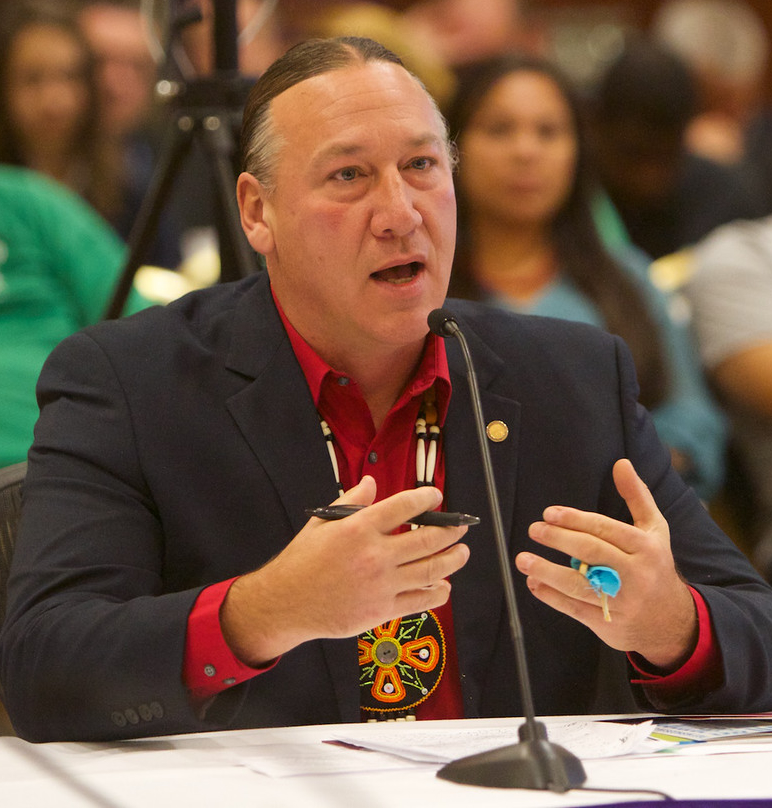
The DNR initially planned to hold a hunt this fall after the agency had a chance to collect updated science and gather input from tribes and the public. But, Kansas-based Hunter Nation sued the DNR to force a hunt. A Jefferson County judge ordered the agency to immediately hold a hunt, which was held the last week in February. State-licensed hunters harvested nearly double their 119-wolf quota, killing 218 wolves in less than 72 hours.
The quota approved Wednesday is more than double the harvest level of 130 wolves that was recommended by the DNR. State wildlife managers say that level was necessary to maintain the wolf population due to uncertainty surrounding its response to the February wolf hunt.
Tribes are entitled to claim nearly half the quota under a federal court ruling that affirmed their federal treaty rights. Ojibwe tribes were allotted 81 wolves during the February hunt, but they declined to harvest the animal since they view the wolf as a brother.
“People out there probably knew that we were going to claim half of that (quota), and that wasn’t good enough for them. They wanted it all,” said John Johnson, Sr., president of the Lac du Flambeau Band of Lake Superior Chippewa. “They don’t care. They don’t have any respect for our tribes.”
Johnson said tribal leaders have no faith the DNR will be able to control this fall’s wolf hunt and prevent further overharvest. He argued that state-licensed hunters and state regulators would be outraged if tribes were to harvest beyond the allotted quota.
The DNR has said it may consider reducing the fall quota for state-licensed hunters to account for overharvest during the February hunt.
Peter David, wildlife biologist with GLIFWC, said the tribe’s declaration is supposed to be based on biological data of the wolf population.
“What the board is attempting to do is to disregard the tribes’ right and circumvent federal tribal law by manipulating the quota to essentially dis-empower the tribes’ position,” said David. “That’s simply not just. It’s not right, and it’s not legal.”
Johnson, who is also chair of the Voigt Intertribal Task Force, would like to see President Joe Biden and his administration intervene to restore protections for the wolf. The commission has already asked the U.S. Fish and Wildlife Service to reconsider its decision to delist the wolf given what tribes see as systemic failures of Wisconsin’s wolf management.
The federal agency is conducting five-year monitoring of state management following the wolf’s delisting. Federal wildlife officials have said they might consider relisting the wolf if state actions are warranted. DNR staff warned the Natural Resources Board that harvesting more than 25 percent of the population in a single wolf season could trigger review from the agency.
Researchers and wolf biologists say the board’s quota threatens to reduce the state’s wolf population by 50 percent or more and destabilize almost every wolf pack in the state.
Some board members argued they have a responsibility to manage the population in line with the state’s existing wolf management plan, which sets a management threshold of 350 wolves for the state.
Critics argue the plan is vastly outdated, which was written in 1999 and last updated in 2007. The DNR has already launched the process of revising the state’s wolf management plan.
Board members who supported the 300-wolf quota argued during Wednesday’s meeting that exceeding the DNR’s recommended harvest level would not decimate the state’s wolf population, including the board’s chair Fred Prehn.
“This board feels that there should be a management of the pack up north. They are thick, and they are a concern for people in northern Wisconsin,” said Prehn.
Lac du Flambeau’s tribal president supports multiple groups who have asked Wisconsin Attorney General Josh Kaul bring legal action to remove Fred Prehn, the board’s chair. Prehn’s term expired on May 1, but he’s pointed to a state Supreme Court ruling that allows him to remain in his seat until the Republican-controlled Senate confirms Gov. Tony Evers’ nominations to the board.
The board has become the center of a political power struggle over natural resources policy. With Prehn’s refusal to leave, members appointed by Republican Gov. Scott Walker hold a 4-3 majority on the board. Groups like Wisconsin Manufacturers and Commerce have supported Prehn’s decision to remain on the board.
In a statement Friday, Evers’ appointee Sharon Adams clarified that she believed she was voting on an amendment when she joined the board’s Walker appointees in a 5-2 vote approving the quota of 300 wolves.
“I want to make it clear that I did not intend to vote for, nor do I support, a quota of 300 wolves for the upcoming November hunting season,” said Adams.
Representatives of farmers and hunting groups who spoke during Wednesday’s meeting urged the board to approve quotas as high as 500 wolves as they’ve seen increasing conflicts with pets and livestock.
Wisconsin Public Radio, © Copyright 2025, Board of Regents of the University of Wisconsin System and Wisconsin Educational Communications Board.

